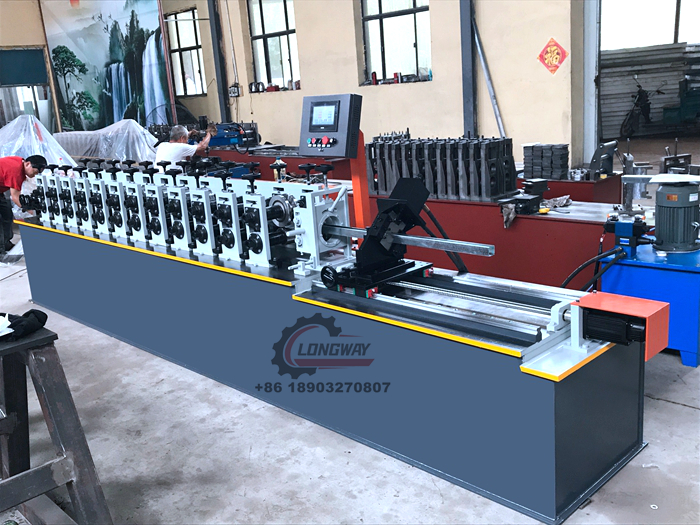Aluminum Roll Forming Equipment for Precision Sheet Metal Fabrication and Production
The Advantages of Aluminum Roll Forming Machines in Modern Manufacturing
The aluminum roll forming machine has emerged as a pivotal technology in the manufacturing sector, particularly for producing aluminum profiles used in a wide variety of applications. Whether for industrial, automotive, or architectural purposes, the roll forming process offers numerous benefits that enhance production efficiency, product quality, and operational flexibility.
At its core, the aluminum roll forming machine operates by continuously bending a long strip of aluminum into specific profiles. The process begins with feeding a coil of aluminum into the machine, which then guides it through a series of rollers. Each set of rollers bends the metal incrementally until the desired shape is achieved. This method stands out as highly efficient, allowing large quantities of aluminum components to be produced in a short period.
One of the most significant advantages of aluminum roll forming machines is their ability to produce complex shapes with a high degree of accuracy. This precision is crucial in many industries where the fit and finish of components can affect the overall performance of the final product. Roll forming machines can create intricate designs without the need for extensive tooling, which reduces setup times and keeps costs down.
Furthermore, aluminum itself is a highly versatile material, known for its lightweight yet sturdy characteristics. This makes it ideal for various applications. Aluminum roll forming machines leverage these advantages by producing components that are not only lightweight but also corrosion-resistant. As a result, products manufactured using this technique require less maintenance over time, which is a critical consideration in industries such as construction and automotive.
aluminum roll forming machine

Another compelling reason to consider aluminum roll forming machines is their eco-friendliness. Aluminum is 100% recyclable without loss of quality, making it a sustainable choice for manufacturers aimed at reducing their environmental footprint. The roll forming process itself generates minimal waste compared to other forming methods, such as machining or stamping, where significant amounts of material can be discarded. This efficiency aligns with the global movement toward sustainable manufacturing practices.
Moreover, automation in the roll forming process enhances productivity and reduces labor costs. Many modern aluminum roll forming machines are equipped with advanced controls and automation systems that enable real-time monitoring and adjustments. This technology helps maintain consistent quality throughout production, minimizes human error, and allows operators to focus on managing the overall production process rather than manual handling.
Flexibility is another notable attribute of aluminum roll forming machines. Manufacturers can easily adjust settings and parameters to produce different profiles without the need for extensive downtime or costly changeovers. This adaptability is particularly beneficial in today's market, where customer preferences are constantly evolving, and the demand for customized products is on the rise. Companies that invest in roll forming technology can quickly respond to market trends and meet customer needs without excessive delays.
In conclusion, aluminum roll forming machines represent a significant advancement in manufacturing technology, offering a host of benefits that cater to the needs of various industries. Their ability to produce high-quality, complex aluminum shapes promptly and efficiently makes them invaluable to manufacturers aiming to improve their production processes. Additionally, the sustainability aspect of aluminum and the inherent flexibility of these machines position them as a forward-thinking solution in an increasingly competitive landscape. As the demand for lightweight and durable materials continues to grow, the popularity of aluminum roll forming machines is likely to increase, further solidifying their role in modern manufacturing.
-
Roof Panel Machines: Buying Guide, Types, and PricingNewsJul.04, 2025
-
Purlin Machines: Types, Features, and Pricing GuideNewsJul.04, 2025
-
Metal Embossing Machines: Types, Applications, and Buying GuideNewsJul.04, 2025
-
Gutter Machines: Features, Types, and Cost BreakdownNewsJul.04, 2025
-
Cut to Length Line: Overview, Equipment, and Buying GuideNewsJul.04, 2025
-
Auto Stacker: Features, Applications, and Cost BreakdownNewsJul.04, 2025
-
Top Drywall Profile Machine Models for SaleNewsJun.05, 2025








